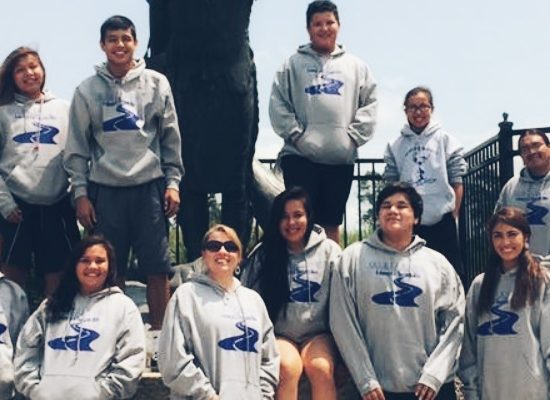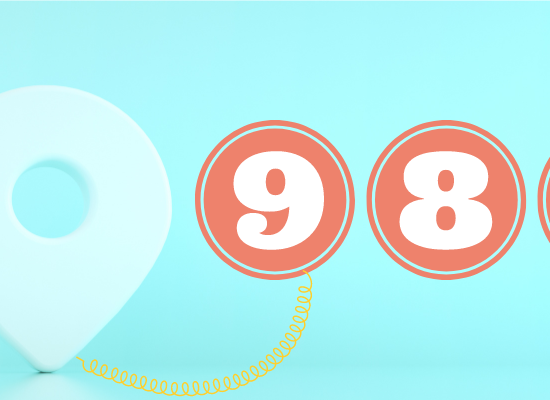
Stephanie Hepburn is a writer in New Orleans. She is the editor in chief of #CrisisTalk. You can reach her at .
On March 4, Utah’s legislature passed its 988 Mental Health Crisis Assistance bill. A week later, Gov. Spencer Cox signed it into law. State Sen. Daniel Thatcher says it took seven years to get to this point.
It actually started a year before Thatcher’s first three-digit bill—when in 2013, he received a desperate call from a constituent, asking questions for which the senator didn’t have answers. He and the constituent were close friends; they’d known each other since high school.
His friend’s voice cracked as he spoke, which took Thatcher by surprise. After all, his friend was a Marine who typically kept his emotions close to the vest. “My 15-year-old woke me in the middle of the night and handed me a noose,” his friend told him. The teen had said to his father, “I’ve been up all night trying not to kill myself.”
The dad of three promptly took his son to the emergency room, where the doctor, irritated, dismissively said, “Bring him back if he hurts himself.” His next call was to Thatcher. “Where do I take him?” he asked the senator. “What do I do?”
If 911 and the emergency room weren’t the places for a 15-year-old in a suicidal crisis, says Thatcher, then he had no idea how to advise his friend. “You’d think a senator would know that, right?” he asks. “I didn’t, but I was going to find out.”
Thatcher started making calls and found help for his friend’s son at the University Neuropsychiatric Institute (now Huntsman Mental Health Institute) at the University of Utah, where the 15-year-old had rapid access to services in the community. “That’s what he needed,” says the senator. “He’s now an adult and doing extremely well.”
It was a happy ending for the teen and his family, but most people don’t have a senator they can call when they face a crisis. “What happens to them?” Thatcher asks. It’s a question he couldn’t shake, and the more he researched the mental health system in Utah, the more questions he had.
The senator quickly discovered that Utah had 23 different crisis lines—half went straight to police dispatch, and the rest went to voicemail. The sole exception was the Utah CrisisLine, the National Suicide Prevention Lifeline (commonly called NSPL or the Lifeline) accredited call center at the University of Utah. “Most people reaching out,” says Thatcher, “weren’t getting the help or rapid responses they needed.”
In 2014, Thatcher proposed a bill to designate 311 as the statewide mental health crisis line. The University of Utah call center would answer calls. “That’s where politics came in,” he says. He and the bill’s floor sponsor, Rep. Steve Eliason, faced a great deal of pushback. Those opposed to the bill asked for data showing that the phone line would be successful.
Thatcher’s colleagues, wary of the topic of suicide, told him “to let it go.” He didn’t but realized he’d have to take a unique approach. That’s when he reached out to Attorney General Sean Reyes, who pointed out a provision: one of his responsibilities as attorney general is to diminish violence. Suicide is the leading cause of death for young Utahns, which meant, said Reyes, it fell under his purview.
The bill, when passed, looked quite different from how it started and established a school safety tip line commission within the attorney general’s office. Attorney General Reyes and Sen. Thatcher pulled in experts to determine mental health system gaps and how to close them. “Basically, we did a study that showed what we already knew,” he says.
Over the next two years, Sen. Thatcher and Rep. Eliason introduced legislation for the school safety and crisis line and launched the SafeUT program alongside the attorney general’s office, the Huntsman Mental Health Institute (then the University Neuropsychiatric Institute), the Utah State Board of Education, and other community partners. The program is available to all Utah schools and includes an app that gives Utah students 24/7 access to the CrisisLine through phone or chat.
Used mainly by middle- and high-schoolers, the senator says app usage increases roughly 20% each year. “The app changed everything for us here in Utah,” says Thatcher. “Kids press one button and they’re connected to a licensed clinician.”
During the Covid pandemic, the app has provided critical insight into how kids in Utah are doing. From January 20, 2020, to January 21, 2021, there were 26,728 chats through the SafeUT app, with an average of 31 interactions per chat. Each chat, says Sen. Thatcher, represents a unique user: a kid. “That’s nearly 10% of our 289,000 middle and high school students.”
CrisisLine reported in September that the average length of chat sessions between a student and counselor increased by 23%.
Thatcher says over those first few years, with each legislative step toward a centralized call center, it felt as if he was pushing against a cultural wall of stigma. People were uncomfortable talking about suicide. And while he aimed to shift societal norms by keeping mental health and suicide prevention a legislative focus, it was wearing on him. That was all about to change.
On the evening before Thanksgiving in 2016, Thatcher and his wife, Summer Thatcher, had U.S. Sen. Orrin G. Hatch over for pecan pie. He told the senator about his hope to create a three-digit number for mental health and suicidal crises, the challenges he faced, and how frustrated he’d become. Getting the legislature to pass suicide prevention law seemed like two steps forward and five back. “I told him, ‘People are preventing us from moving forward, and I just don’t know what to do,’” says Sen. Thatcher.
 Sen. Hatch put his hand on Thatcher’s shoulder and said, “My boy, you’re thinking too small.” He told him to expect a call from Ryan Leavitt, who served as counsel to Sen. Hatch on the Senate Judiciary Committee.
Sen. Hatch put his hand on Thatcher’s shoulder and said, “My boy, you’re thinking too small.” He told him to expect a call from Ryan Leavitt, who served as counsel to Sen. Hatch on the Senate Judiciary Committee.
The day after Thanksgiving, Leavitt called Sen. Thatcher and said, “The senator says we’re going to work on a project together. What are we doing?” Thatcher explained what a mental health system patterned after 911 would look like in Utah and nationwide. “Ryan was silent a moment,” he says. “Then he said, ‘I’m getting on a plane to Utah. How soon can we meet?’”
Leavitt and Luci Arveseth, a legislative assistant for Rep. Chris Stewart, met with Sen. Thatcher and Summer Thatcher at the State Capitol. They sat in a circle of chairs facing one another. The senator went into detail about what a three-digit number could do for Utah and the United States. Leavitt reassured the senator the issue would be a priority for Sen. Hatch’s office.
In 2017, Rep. Stewart and Sen. Hatch began the process to designate a nationwide three-digit dialing code by introducing the National Suicide Prevention Hotline Improvement Act.
Back at home in Utah, says Sen. Thatcher, he and Rep. Eliason inched closer to the three-digit number they’d initially proposed in 2014. In 2018, Sen. Thatcher and Rep. Eliason crafted legislation to create a single crisis number across the state, including a three-digit number for calls and a shortcode for texts.
The 2018 bill was named Hannah’s Bill after a 16-year-old teen who died by suicide in 2014. Thatcher says Laura Warburton had programmed a local crisis line into her daughter’s phone. In a suicidal crisis, Hannah called the number, and no one answered. “It was a tragedy that might have been avoided had someone picked up,” says Thatcher.
“To save lives, crisis lines must be staffed 24/7. With the 2018 legislation, we could finally make that non-negotiable.”
The transition wasn’t without growing pains. Crisis line providers scoffed at the new law. They felt a local line in their area would better serve people in crisis than a statewide call center. He told them, “Then answer your phones.” “It’s simple,” he says. “If you don’t answer calls 24 hours a day, seven days a week, with a licensed clinician, then you can’t have a crisis line in the state of Utah. And you need to refer people to the Lifeline.”
Much like in other states, with the National Suicide Hotline Designation Act signed into law in October, Utah’s 2021 legislative session has focused on fortifying mental health, substance use, and suicidal emergency response to prepare for 988. They’ve passed a series of bills, including the 988 Mental Health Crisis Assistance bill designed to fund and strengthen crisis services.
The newly passed legislation instructs the Department of Human Services, specifically the Division of Substance Abuse and Mental Health, to apply for Section 1115 Medicaid demonstration waivers or a state plan amendment that would allow for reimbursement of 988 services for people “eligible and enrolled in Medicaid.”
The law also establishes a statewide behavioral health crisis response account made up of money from the legislature and private donations. Sen. Thatcher was on pins and needles waiting to hear if the legislature appropriated any funds. “It was the 11th hour and 59th minute when we heard the news,” says Thatcher. However, he and Rep. Eliason were in for a positive surprise.
“The legislature waited until the last minute, but they appropriated $15.9 million into the fund,” says Thatcher. “I’ll be honest; it made me cry. It’s the most Utah has ever put into behavioral health in a single year.” That’s nearly twice as much as the $8 million the legislature appropriated last year.
The fund supports all 988 services in Utah. That includes the CrisisLine call center and mobile crisis, receiving centers, stabilization services, and other behavioral health crisis services. Spending from the account is tiered and prioritizes the statewide call center before it goes to other 988 services. “We know these services work,” Sen. Thatcher says. He points out that Utah’s Lifeline call center stabilizes 90% of calls and costs roughly $40 per call. When the call center dispatches a mobile crisis team, there’s a 75% stabilization rate, and the cost is about $400. “That’s far better for people than the emergency room—both to address their crisis, and there’s less financial burden.”
Behavioral health crisis services can’t improve in a silo. That’s why the legislation amends the Behavioral Health Crisis Response Commission to adequately include cross-sectoral representation. Among the commission’s members are legislators, agency leaders, behavioral health experts and people with lived experience, hospital association representatives, EMS, and law enforcement.
Sen. Thatcher says he’s going to continue talking about suicide prevention until everyone listens. “Anybody who thinks about it will get it,” he says, “unless they deliberately don’t want to.” For him, it’s personal. Not just because of that fateful phone call in 2013 but because his childhood friend died of suicide at 15 years old. Thatcher himself was struggling with depression and suicidal ideation at the time.
“If I’d known Travis wasn’t okay, I would have told him I wasn’t okay too,” he says. “Maybe if we’d talked about it, the outcome would have been different.” In a suicidal crisis, Sen. Thatcher says that “kids really need someone to talk to.”
In the United States, when a neighbor experiences a medical crisis, people bring them casseroles. If they have a behavioral health crisis, says Sen. Thatcher, people gossip. He hopes 988 creates parity and shatters the wall of stigma that so many Americans face. “It offers a future where people know where to call for a behavioral health emergency, just like they do with a medical emergency,” he says. “And by putting it on par with medical crises, we, as a society, will hopefully begin to treat our neighbors with the same respect and kindness when they face a psychiatric emergency as when they face a medical one.”
Sen. Thatcher points out that even three years ago, most people couldn’t have imagined where 988 could take the nation. Now it’s a shared vision. “We’ve come so far,” he says. “We’ve been trudging barefoot and dehydrated with so little hope in sight, and we persevered, but it was hard. Now we have shoes, water, and the vehicle for change: 988.”
Photo (from left): Louise Thatcher, Eldon Thatcher, former U.S. Sen. Hatch, State Sen. Thatcher, and Summer Thatcher









